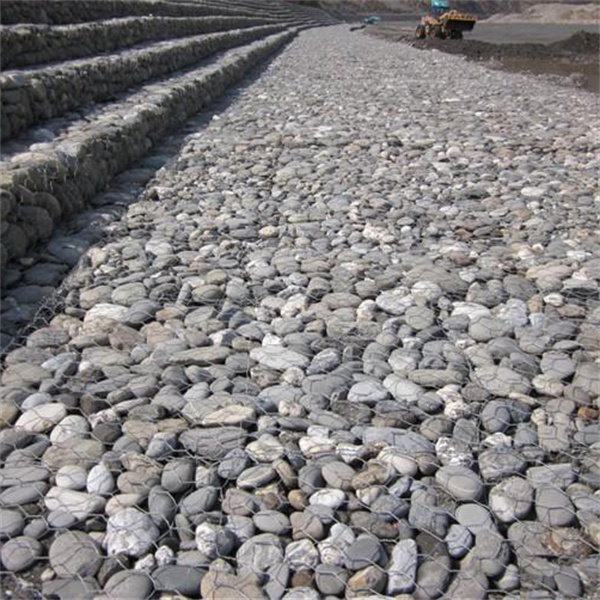ನವೆಂ . 05, 2024 20:58 Back to list
china gabion wall wire gauge
Understanding China Gabion Wall Wire Gauge An Essential Component for Stability and Durability
Gabion walls have become increasingly popular in various civil engineering and construction projects. These versatile structures, made from wire mesh filled with rocks, soil, or other materials, serve multiple purposes such as erosion control, riverbank stabilization, and even decorative landscaping. One key component that significantly impacts the performance and longevity of gabion walls is the wire gauge. This article aims to provide a deeper understanding of the wire gauge used in gabion construction specifically in the context of china gabion wall applications.
What is Wire Gauge?
Wire gauge refers to the diameter of the wire used to construct the gabion baskets. It is typically measured in millimeters or gauges. The gauge affects the strength, durability, and flexibility of the wire mesh; thus, choosing the right wire gauge is paramount for the intended application of the gabion wall. In China, where gabion walls are commonly used, the wire gauge can vary depending on specific project needs and the materials used.
Importance of Wire Gauge in Gabion Walls
The choice of wire gauge is crucial for several reasons
1. Strength and Load Bearing Capacity The wire gauge determines the ability of the gabion wall to bear loads. A thicker wire gauge (lower numerical value) offers higher tensile strength, allowing the structure to withstand significant forces, such as soil pressure or hydraulic loads from nearby water bodies.
2. Durability and Corrosion Resistance Gabion walls are often exposed to harsh environmental conditions, including moisture, which can lead to rust and failure over time. In China, where the climate can vary drastically, selecting a wire gauge that is adequately coated (such as galvanized or PVC-coated wire) will enhance corrosion resistance, thereby increasing the lifespan of the wall.
china gabion wall wire gauge

3. Flexibility Thinner wire gauges provide more flexibility, making it easier to adapt the gabion structure to various shapes and configurations. While this may be beneficial in certain designs, it may compromise the overall strength. Therefore, a balance between flexibility and strength must be achieved based on project requirements.
Common Wire Gauges Used in China
In the Chinese market, the wire gauges commonly used for gabion walls range from 2.0 mm to 5.0 mm. The most frequently employed sizes include
- 2.0 mm to 3.0 mm Usually sufficient for small-scale projects, decorative use, or lightweight applications. They offer adequate flexibility, making them suitable for garden walls and landscaping features.
- 4.0 mm This gauge is a popular choice for medium to large gabion walls, providing a good balance between strength and flexibility. It is commonly used in erosion control along riverbanks and slopes.
- 5.0 mm and above Heavier gauge wires are utilized for heavy-duty applications that require substantial load-bearing capacity. These are typically used for large-scale engineering projects, such as retaining walls or in areas subject to significant environmental stress.
Conclusion
Selecting the appropriate wire gauge for gabion walls is essential for ensuring their effectiveness and longevity. In the context of China, where varying weather conditions and diverse applications dictate the requirements of gabion structures, understanding the interplay between wire gauge, strength, durability, and flexibility is critical. By making informed decisions about wire gauge, engineers and construction professionals can create robust gabion walls that stand the test of time, promoting sustainable and resilient infrastructure development throughout the country. Engaging with reputable suppliers and adhering to local standards can further enhance the performance and reliability of gabion walls, ensuring they serve their intended purpose effectively.
-
Visualizing Gabion 3D Integration in Urban Landscapes with Rendering
NewsJul.23,2025
-
The Design and Sustainability of Gabion Wire Mesh Panels
NewsJul.23,2025
-
The Acoustic Performance of Gabion Sound Barriers in Urban Environments
NewsJul.23,2025
-
Mastering the Installation of Galvanized Gabion Structures
NewsJul.23,2025
-
Gabion Boxes: Pioneering Sustainable Infrastructure Across the Globe
NewsJul.23,2025
-
Custom PVC Coated Gabion Boxes for Aesthetic Excellence
NewsJul.23,2025
-
Installation Tips for Gabion Wire Baskets in Erosion Control Projects
NewsJul.21,2025






